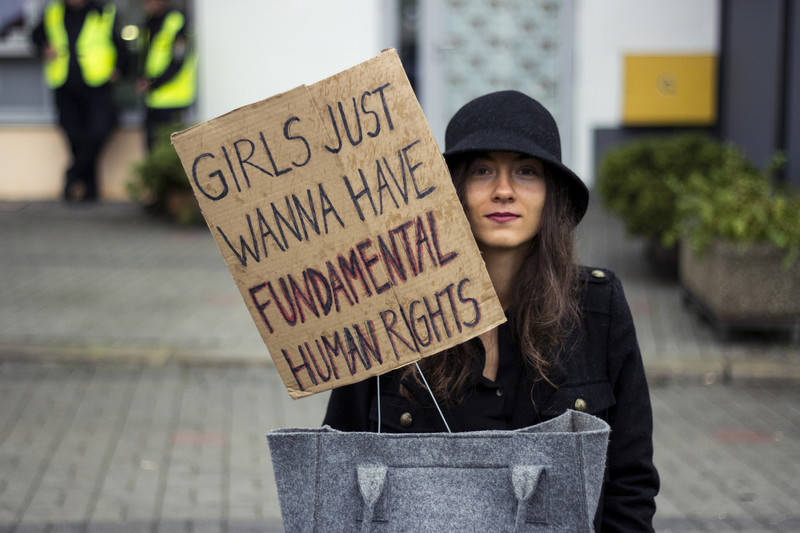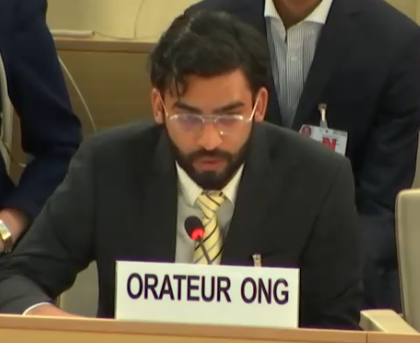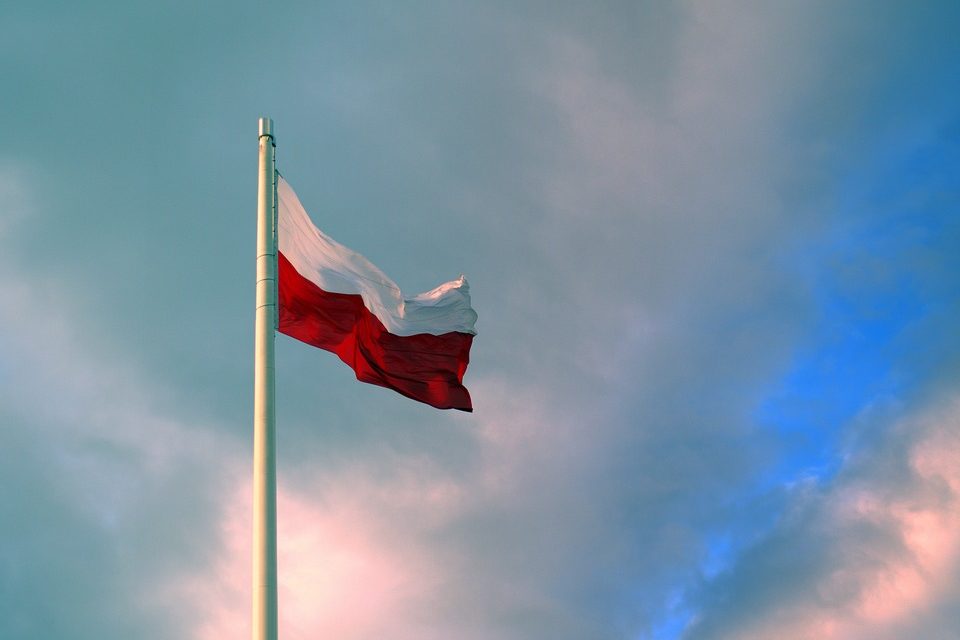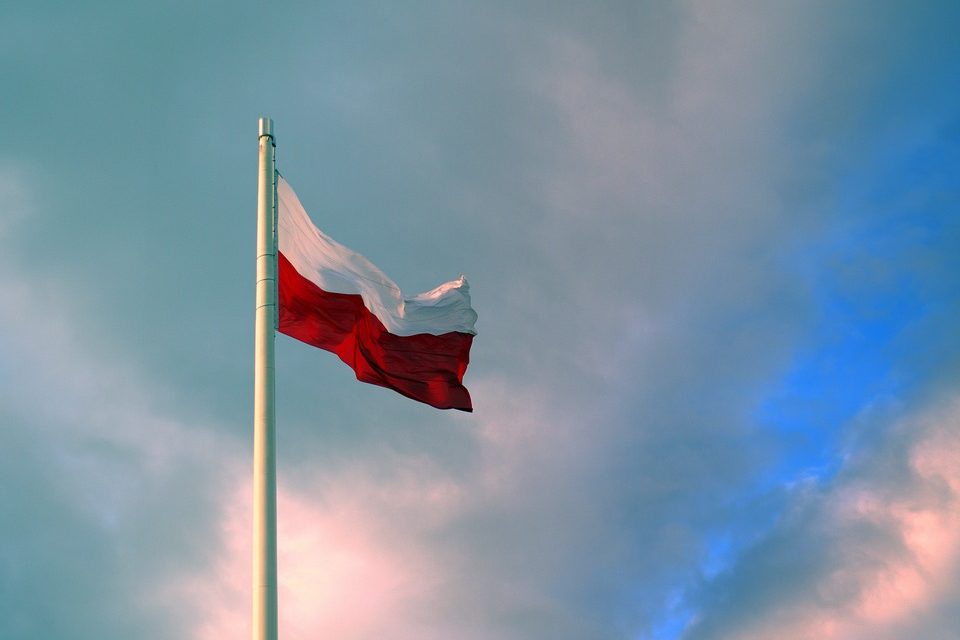
Jun 4, 2020 | News
The ICJ today raised concern at the threat of criminal proceedings against Judge Igor Tuleya on charges arising from the judge’s independent exercise of his judicial functions. The ICJ called on the Disciplinary Chamber of the Supreme Court not to lift his immunity at its 9th June hearing.
Judge Tuleya faces prosecution for having allowed the presence of media in a sensitive case concerning the investigations on the 2017 budget vote in the Polish House of Representatives (Sejm) that took place without the presence of the opposition.
He has been charged with ‘failing to comply with his official duties and overstepping his powers’ for having allegedly disclosed a secret of the investigation to ‘unauthorized parties’.
The accusations stem from the initiative of the judge to allow media and the public in the courtroom while issuing his ruling. Usually rulings on investigations are issued behind closed doors in Poland but the criminal procedure code allows judges to make the hearing public “in the interest of justice”.
“Judge Tuleya should not face any criminal proceedings to begin with for his actions in delivering his ruling in public, which is in accordance with national law”, said Massimo Frigo, Senior Legal Adviser for the ICJ Europe and Central Asia Programme. “His immunity must be maintained and the ‘Muzzle Act’ that allowed for these abusive prosecutions should be immediately scrapped.”
These proceedings are the first case of implementation the draconian Act amending the Law on the Common Courts, the Law on the Supreme Court and Some Other Laws, signed into law on 4 February and widely known as the ‘Muzzle Act’, which gave competence to waive judicial immunity to the Disciplinary Chamber of the Supreme Court.
“As highlighted by the recent ruling of the EU Court of Justice, the Disciplinary Chamber of the Supreme Court is not independent and is open to undue influence or interference by political authorities. It should therefore not rule on issues pertaining to the disciplinary or criminal responsibility of judges, including a waiver of their immunity,” Massimo Frigo added.
Background
On 19 November, the Court of Justice of the European Union (CJEU) delivered a ruling in the case A.K. and others (C-585/18, C-624/18, C-625/18), on a preliminary question by the Supreme Court of Poland. The preliminary question asked whether the recently established Disciplinary and Extraordinary Chambers of the Supreme Court could be considered to be independent.
The CJEU ruled that a court cannot be considered independent “where the objective circumstances in which that court was formed, its characteristics and the means by which its members have been appointed are capable of giving rise to legitimate doubts, in the minds of subjects of the law, as to the imperviousness of that court to external factors, in particular, as to the direct or indirect influence of the legislature and the executive and its neutrality with respect to the interests before it and, thus, may lead to that court not being seen to be independent or impartial with the consequence of prejudicing the trust which justice in a democratic society must inspire in subjects of the law.”
Based on this ruling, the Labour, Criminal and Civil Chambers of the Supreme Court declared that the Disciplinary and Extraordinary Chambers of the Supreme Court were not properly constituted and independent.
According to the UN Basic Principles on the Independence of the Judiciary, judges are entitled to a fair hearing in all disciplinary proceedings (principle 17). In order for such a hearing to be fair, the decision-maker must be independent and impartial.
International and European standards on the independence of the judiciary provide that judges should have immunity from criminal prosecution for decisions taken in connection with their judicial functions in the absence of proof of malice, and any procedure for removing immunity must itself be independent (see for instance, UN Special Rapporteur on the Independence of Judges and Lawyers, paras 65-67 and 98; Council of Europe Committee of Ministers, para 68; Consultative Council of European Judges, para 20; ICJ Practitioners Guide no 13, pp. 27-30).
On 26 February 2020, the Polish Prosecutor’s Office requested a waiver of Judge Tuleya’s immunity in order to press criminal charges which might lead to imprisonment. The waiver will be examined on the 9 June 2020 by the Disciplinary Chamber of the Supreme Court appointed by the government.
In an open letter of 5 February 2020, 44 ICJ Commissioners and Honorary Members denounced the recent legislative changes adopted by the Polish government threatening the role and the rights of judges and denouncing the risks faced by legal practitioners when fighting for the rule of law. Two weeks later, the risks highlighted by the letter have become reality for an increasing number of Polish judges, including Judge Tuleya.
Contact:
Massimo Frigo, Senior Legal Adviser, Europe and Central Asia Programme, e: massimo.frigo(a)icj.org, t: +41 22 979 38 00

Apr 14, 2020 | Advocacy, News
The ICJ and 108 other organizations are deeply concerned by relentless attempts to roll back sexual and reproductive rights in Poland.
On 15 and 16 April Poland’s Parliament will again debate two draft bills that would severely limit access to safe abortion care and would criminalize the provision of sexuality education.
If enacted into law these bills would place women’s and adolescents’ health and well-being at risk and violate Poland’s international human rights obligations.
Full statement, in PDF: Poland-COVID-19 Abortion bill-Advocacy-2020-ENG)

Mar 6, 2020 | Advocacy, Non-legal submissions
The ICJ, speaking in a general debate at the UN Human Rights Council in Geneva, urged all States to work together towards adoption of a treaty on business and human rights, and highlighted threats to the independence of the judiciary in Europe.
The statement, delivered in the general thematic debate at the Council, read as follows:
“The International Commission of Jurists (ICJ) welcomes the report of the 5th session of the Intergovernmental Working Group (A/HRC/43/55) in charge of the elaboration of a treaty on business and human rights and notes the consensual nature of its conclusions and recommendations. Abuses of human rights and environmental degradation caused with the involvement of business enterprises have so far been met with very limited action by businesses and States.
The ICJ considers that the revised draft treaty is a serious and advanced proposal that is suitable for negotiations and thanks the Chair-Rapporteur for its efforts and leadership in this process.
The ICJ urges States that are not yet actively involved in the negotiations to join the growing number of States that are active for a final push.
The ICJ also draws the attention of the Council to serious threats to independence of judges and lawyers in European countries.
In Poland, judges are being disciplined merely for applying EU law, under legislation curtailing their freedom of expression and independence.
In Turkey, independence of lawyers and judges continues to be seriously compromised, as demonstrated by the disciplinary proceedings against the Gezi trial judges launched after critical comments by the President of Turkey.
The ICJ urges the Council to give attention to these developments of extreme concern.”

Feb 5, 2020 | Advocacy, News, Open letters
ICJ Commissioners and Honorary Members today denounced the rapidly escalating rule of law crisis in Poland, after a new law was passed that would result in harassment of judges upholding the independence of the judiciary.
A group of 44 ICJ Commissioners and Honorary Members, including senior judges, lawyers and legal scholars from around the world said in their statement “it is clear that the separation of powers, the independence of the judiciary, and the capacity of Polish judges to uphold the rule of law are now severely compromised. Judges’ freedom of expression, association and assembly are under immediate threat.”
The statement
The International Commission of Jurists (ICJ), its Centre for the Independence of Judges and Lawyers (CIJL) and the undersigned Commissioners and Honorary Members of the ICJ are alarmed at the rapidly escalating rule of law crisis in Poland.
It is clear that the separation of powers, the independence of the judiciary, and the capacity of Polish judges to uphold the rule of law are now severely compromised. Judges’ freedom of expression, association and assembly are under immediate threat.
The passing by the Sejm on 23 January of the amendments to the laws on the judiciary, and their signing into law on 4 February, means that judges will be prohibited from questioning the legitimacy or institutional independence of any Polish court, even where its members have been appointed through a politically controlled process, in violation of EU and international law. Judges will face disciplinary action for denying the validity of any judicial appointment.
This law is an attempt to prevent any Polish court from upholding the independence of the judiciary, in the face of repeated legislative and government attacks on judicial independence in recent years.
This is directly contrary to the obligations of judges under the EU treaties to apply EU law, and would therefore lead to violations of Poland’s EU law obligations. It would also lead to violations of Poland’s obligations under international human rights law, since it would require judges to act contrary to their duty to uphold the right to a fair hearing before an independent and impartial tribunal.
As the Venice Commission noted in its recent opinion on the amendments, they are clearly “designed to have a nullifying effect” on recent judgments and resolutions of the Court of Justice of the EU and the Polish Supreme Court, which have called into question the validity of recent judicial appointments. As such, they do severe damage to the rule of law in Poland.
These developments follow recent legislation which has politicised the National Council of the Judiciary (NCJ) and imposed executive control of the appointment process for judges of the Supreme Court, court presidents and other judges. A powerful new Extraordinary Chamber as well as a Disciplinary Chamber of the Supreme Court, appointed under this new system, has further entrenched political control of the judiciary.
The ICJ, its undersigned Commissioners and Honorary Members, applaud the continued resolute defence of the rule of law by sections of the Polish judiciary. This has been evident in the resolution of the Supreme Court (Civil, Criminal, Labour and Social Security Divisions) of 23 January which found that recent judicial appointments meant that some Polish courts were not sufficiently independent to be legitimately constituted.
We deplore the response by President Adrzej Duda in which he suggested that judges opposing the judicial reforms on the judiciary acted out of improper self-interest.
The undersigned ICJ Commissioners and Honorary Members affirm their solidarity with Polish judges, in particular those who are currently facing abusive disciplinary or criminal proceedings for carrying out their judicial functions in accordance with the principle of judicial independence, or for exercising their freedom of expression, association or assembly as a means to defend the rule of law.
We recall that international human rights law and international standards on the judiciary require all branches of government to respect the independence of the judiciary. Furthermore, they recognise that judges have rights to freedom of expression and association and that they have a particularly important role in contributing to discussions on issues of the functioning of the judicial system and the rule of law, especially in defending the independence of the judiciary.
We call on the international community to respond to the Polish rule of law crisis in a manner appropriate to the gravity of the situation, before the damage to the Polish legal system becomes further entrenched.
In particular, we call on the European Union to urgently advance proceedings concerning Poland under Article 7 TEU, in light of the clear breach of EU law and EU fundamental values entailed by the new law, in conjunction with previous reforms, and by the government’s open defiance of decisions of the Court of Justice of the EU and the Polish Supreme Court.
Poland-Commissioners-Statement-Advocacy-Open-Letter-2020-ENG, (full text with all signatories, PDF)

Dec 18, 2019 | News
The ICJ called today on the Polish House of Representatives (Sejm) to drop a draft law that would put judges at risk of disciplinary action for their interpretation and application of the law, including EU and international law.
The draft law would also mean that judges would face disciplinary penalties for legitimate criticism of judicial reforms.
“The Polish Parliament should reject these proposals which would place intolerable constraints on judges in interpreting and applying the law and would undermine their freedom to speak out on vital issues of judicial independence,” said Róisín Pillay, Director of the ICJ Europe and Central Asia Programme.
“Elements of the proposals appear designed to prevent judges from fulfilling their obligation under the EU treaties to apply EU law, which is an attack on the independent exercise of their judicial function” she added.
Under the proposals, judges would face disciplinary action and possible dismissal for refusing to apply a legal provision, unless it had been deemed unconstitutional by the Constitutional Tribunal.
This proposal appears to be a direct reaction to a recent decision of the Labour Chamber of the Supreme Court which, applying a ruling of the Court of Justice of the EU, held that the Supreme Court’s Disciplinary Chamber was not an independent court. The Labour Chamber found that that the Disciplinary Chamber is not independent since its judges are appointed by the National Council of the Judiciary (NCJ). Following a recent constitutional reform, the NCJ is composed predominantly of members elected by Parliament and the executive, contrary to international standards on the independence of the judiciary.
New disciplinary offences for judges under the draft law would also include questioning the status of Polish judges, and “political engagement”. Judges would be prohibited from questioning the status of Polish courts or tribunals or constitutional organs. Futhermore, the draft law would prevent judges’ associations from adopting resolutions “expressing hostility towards other powers of the Republic of Poland and its constitutional organs”.
These provisions would hamper judges’ capacity to criticize reforms which have led to questionable judicial appointments by the NCJ and have seriously damaged the independence of the judiciary as a whole. International human rights law and international standards on the judiciary recognise that judges have a right to freedom of expression and that they have a particularly important role in contributing to discussions on issues of the functioning of the judicial system and the rule of law.
Background
On 19 November, the Court of Justice of the European Union (CJEU) delivered a ruling in the case A.K. and others (C-585/18, C-624/18, C-625/18), on a preliminary question by the Supreme Court of Poland. The preliminary question asked whether the recently established Disciplinary and Extraordinary Chambers of the Supreme Court could be considered to be independent.
The CJEU ruled that a court cannot be considered independent “where the objective circumstances in which that court was formed, its characteristics and the means by which its members have been appointed are capable of giving rise to legitimate doubts, in the minds of subjects of the law, as to the imperviousness of that court to external factors, in particular, as to the direct or indirect influence of the legislature and the executive and its neutrality with respect to the interests before it and, thus, may lead to that court not being seen to be independent or impartial with the consequence of prejudicing the trust which justice in a democratic society must inspire in subjects of the law.”
The UN Basic Principles on the Independence of the Judiciary clarify that all governmental and other institutions must respect and observe the independence of the judiciary (Principle 1), and that judges must decide all matters before them impartially, on the basis of facts and in accordance with the law, without any restrictions, improper influences, inducements, pressures, threats or interferences, direct or indirect (Principle 2). Judges can be subject to suspension or removal only following fair procedures (Principle 17) and only for reasons of incapacity or behaviour that renders them unfit to discharge their duties (Principle 18).
The UN Basic Principles, also affirm the freedom of expression and association of judges (Principle 8) in line with protections under international human rights law, and their right to form and join associations of judges to represent their interests (Principle 9).
In recent years, the Polish executive and legislative authorities have systematically undermined the independence of the judiciary in the country, including through laws that have sought to force the dismissal of judges by lowering the mandatory retirement age. In addition, they have brought the appointment of judges under political control by re-structuring the National Council of the Judiciary (NCJ), with a majority of its members selected by the Polish Parliament. (see ICJ statement)
This move has also politicized the Disciplinary Chamber of the Supreme Court, whose members are selected by the NCJ, and the disciplinary court of first instance. In October 2019, the European Commission referred Poland to the CJEU on the grounds that the new disciplinary regime for judges undermines their independence.
In June 2019, the Court of Justice of the European Union (CJEU) held that the Polish Law on the Supreme Court lowering the retirement age of judges of the Supreme Court and providing discretionary power to the President to allow a judge to remain in office following the mandatory retirement date was contrary to the principle of effective judicial protection and therefore in violation of EU law. In November 2019, the CJEU held that Poland violated the independence of the judiciary by lowering in 2017 the pension age of Polish judges and giving the power to maintain them in office to the Minister of Justice.
The ICJ has documented, and the UN Special Rapporteur on independence of judges and lawyers has affirmed, that the right of judges to freedom of expression is particularly protected when in situations where the rule of law or constitutional order is under threat, they speak out in defence of the independence of the judiciary.
Contacts:
Róisín Pillay, Director for Europe and Central Asia Proramme, t: +32 2 734 84 46; e: roisin.pillay(a)icj.org
Massimo Frigo, Senior Legal Adviser of the ICJ Europe and Central Asia Programme, t: +41 22 979 3805 ; e: massimo.frigo(a)icj.org









